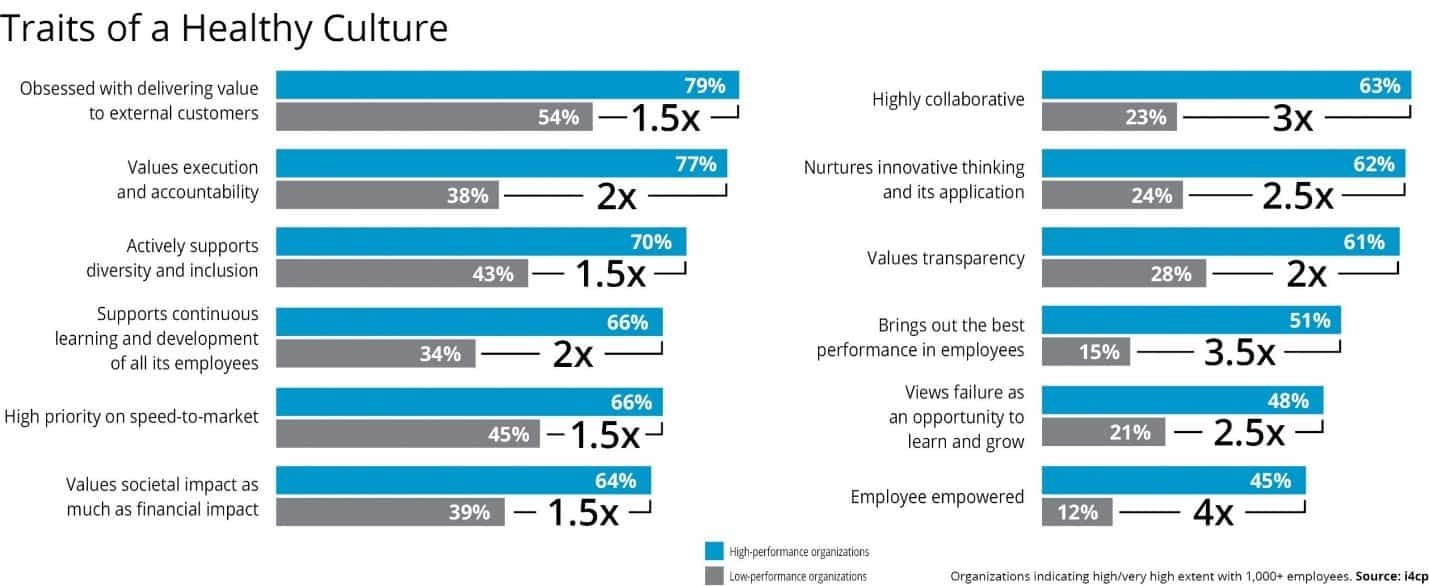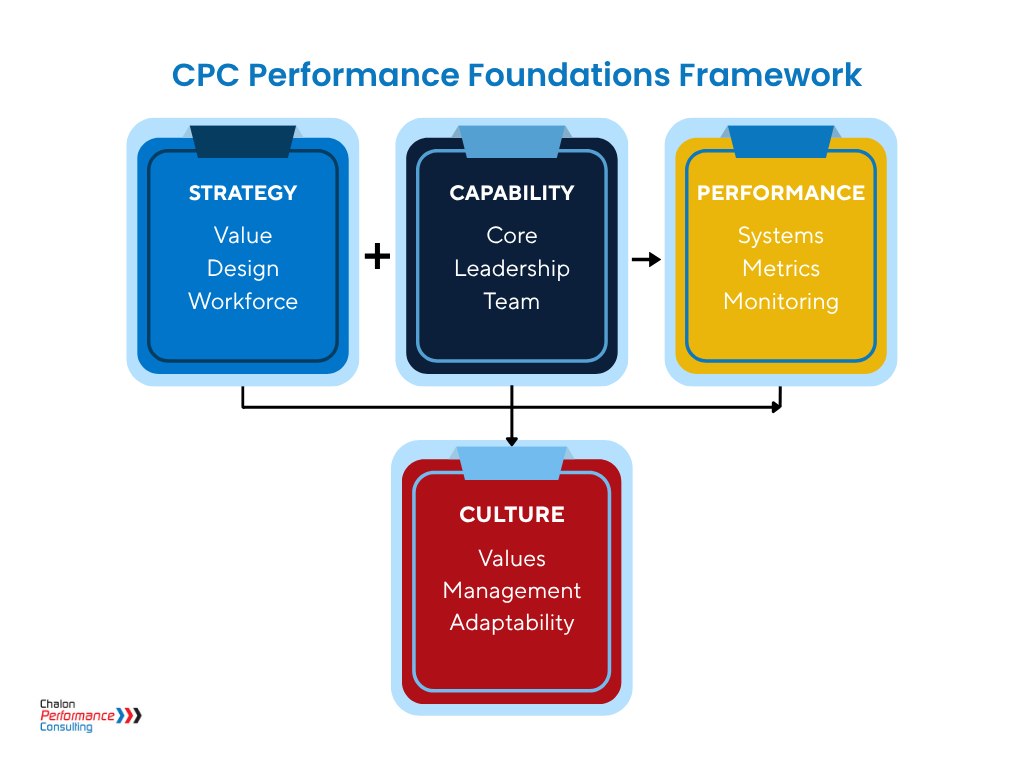“The bottom line for leaders is, if they do not become conscious of the cultures in which they are embedded, those cultures will manage them.”—Edgar Schein
Here’s the truth. The majority of businesses do not have a firm grasp of their culture. Others don’t even consider it worth assessing the culture. According to Skip Richard, “Only 15% of organisations succeed in their attempts to improve company culture.” Some believe that cultural revolutions are notoriously difficult to initiate. However, culture infiltrates every person, every team, and every department, it highlights core values and the very nature of the performance levels occurring throughout. The article also stated that the main reason why only 15% of companies succeed in culture change is that it is hard. Companies tend to “assume” or “hope” things will improve, not realising that “change” is not guaranteed. This is why organisations need to prioritise tackling their cultural transformation.
High-performing organisations get external consultants to provide empirically proven benchmarks and data analysis. Good consultants can give you new perspectives, thinking, systems technology tools, and concepts and help you use them to set your company off to greatness. If a new leader joins an organisation, the best way to assess and understand the existing culture is, at all levels, divisions, regions, and departments, to understand the culture through the eyes of the employees. Richard suggests the best way is by doing frequent surveys and formal culture assessments. These formal assessments are best done by external consultants with specialist expertise.
The figure below shows the traits of a healthy culture:

According to Richard, High-performing companies value the following more than low-performing companies do:
- Obsessed with delivering value to customers
- Value execution and accountability
- Actively support diversity and inclusion
- Support continuous learning
- Value societal impact as much as financial impact
- Value transparency
- Encourage employee autonomy
Coupled with a ‘growth mindset’, it would also help to employ simple yet powerful change concepts and actively manage the change initiatives following a comprehensive culture survey, whenever you are changing culture.
Need a cultural shift but think/feel it’s too hard? No problem – CPC employs proven scientific methods and empirical evidence that certain strategies, practices, and behaviours are relevant and worthwhile. This means we can look at data points in greater detail to create a plan that will take your business in the right direction, towards a desirable outcome. Let’s discuss tackling your cultural transformation.














